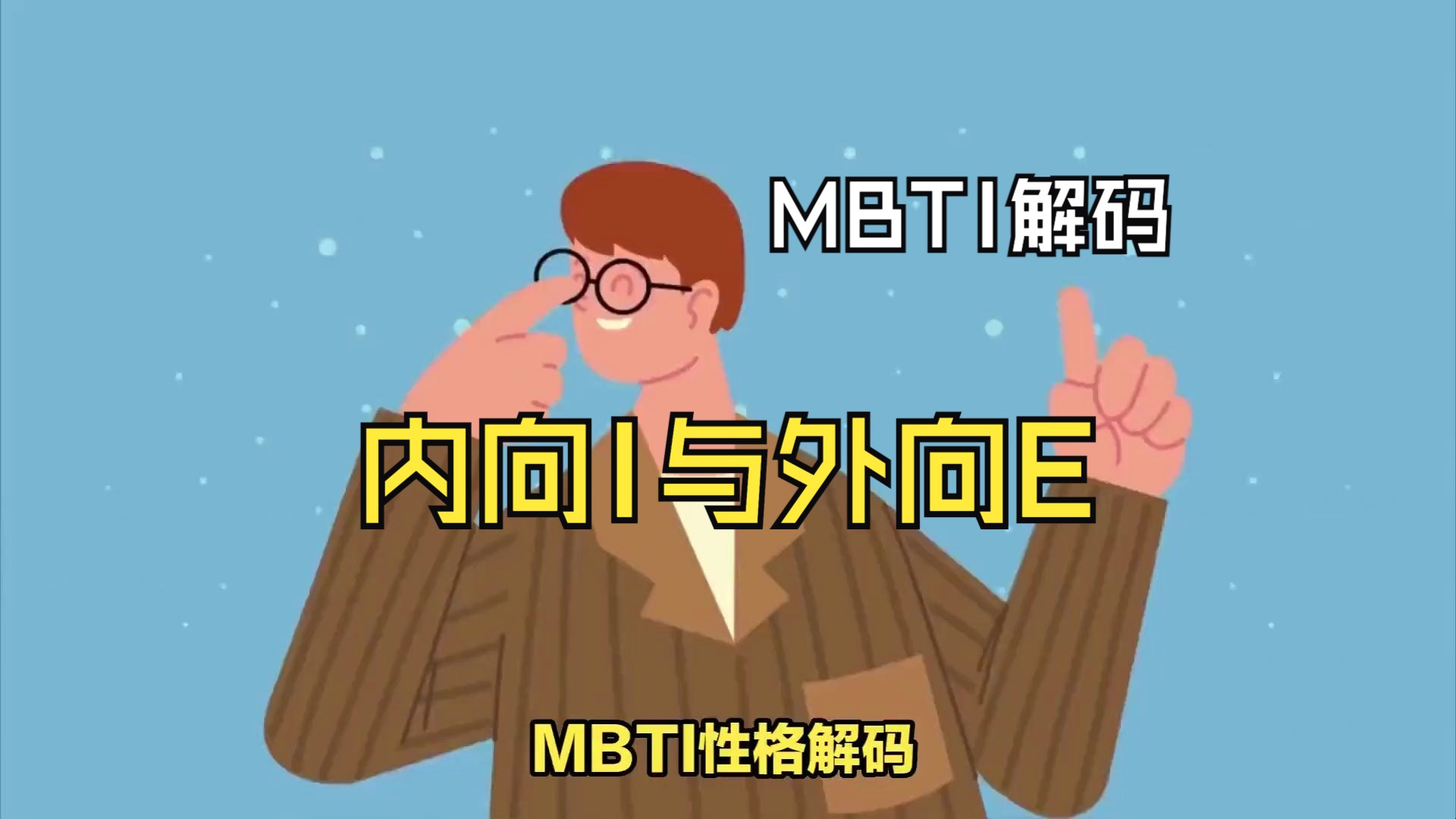Do you know if you are introvert (type I) or extrovert (type E)?
In the MBTI (Myers-Briggs Type Indicator) personality type test, 'I' stands for Introversion and 'E' stands for Extraversion , these two letters reveal how you get energy and your tendency to interact with your social interaction .
This article will provide you with an in-depth analysis of the differences, characteristics, advantages and disadvantages of MBTI's introvert and extrovert, and suitable life and career methods , help you understand yourself and develop your strengths.
Free MBTI Personality Test Portal
Not sure if you are Type I or Type E?
We have prepared an authoritative and free MBTI Type 16 personality test for you to help you quickly determine your type:
1. What are 'I' and 'E' in MBTI?
MBTI is a personality classification tool developed based on psychology theory (June personality theory), which divides people into 16 personality types.
The first dimension: 'I (introversion)' and 'E (outtroversion)' are one of the most basic and most significant personality preferences.
| Dimension | meaning | Expression method |
|---|---|---|
| Type I (introvert) | Get energy inward | Be alone, think deeply, listen, and be low-key |
| Type E (outer) | Get energy from the outside world | Socialize, express, act, open |
2. The core difference between introversion (I) and extroversion (E)
1. Different sources of energy
- Type E : Feeling recharged in the crowd, gaining energy through socializing, talking, and discussing.
- Type I : Recover energy while being alone and easily feel tired after socializing for a long time.
2. Different ways of thinking and expression
- Type E : tend to think while talking, speak directly, and be good at improvisation.
- Type I people : Think first and then express, like to think deeply, and prefer written expression or private conversation.
3. Different social preferences
- Type E people : They prefer large groups, diverse social circles, and like to meet new friends.
- Type I people : They are more willing to interact with acquaintances and attach importance to in-depth and lasting one-to-one relationships.
3. The differences in performance between type I and type E people in work and life
✅ Work style:
- E-type personality : Like quick feedback, team discussion, goal-oriented work. Suitable for sales, public relations, management, hosting and other positions.
- Type I personality : good at completing in-depth tasks independently and meticulously thoughtful. Suitable for writing, R&D, psychological counseling, and data analysis.
✅ Decision-making method:
- Type E people tend to be action-oriented, 'do it first and then adjust';
- Type I people are more cautious and 'plan first and then act.'
✅ Pressure recovery method:
- Type E: Relax through social activities or going out.
- Type I: Recover energy through reading, quiet environment, meditation, etc.
4. Which type do you belong to? Tips for judging oneself
- Do you like to stay home alone on weekends or go out with friends?
- Do you easily feel 'exhausted' in crowded places?
- Are you better at writing emails or communicating on-site?
These questions help you determine whether you are MBTI introvert (I) or extrovert (E) .
👉Suggestion : Don’t judge personality type based on just one or two traits. It is recommended that you obtain a complete analysis through authoritative tests:
5. Summary: There is no good or bad difference between 'I' and 'E' in MBTI
Whether you are extroverted or introverted, you have unique advantages:
- Type E people have strong adaptability, natural expression and wide interpersonal resources;
- Type I people are focused, thoughtful and self-reflective.
MBTI is not a label, but a tool to recognize yourself , helping you to have a more direction in interpersonal communication, career development, emotional regulation, etc.
🎯Click to start the full version of free MBTI career personality test
Further reading recommendations
- What do I and E mean?
- Introduction to the complete version of MBTI Type Sixteen Personality (suitable for beginners)
- Top 10 Careers Recommendations for Introverted Personality
- Who is the MBTI test suitable for? Why are HR used?
Link to this article: https://m.psyctest.cn/article/jM5XXV5L/
If the original article is reprinted, please indicate the author and the source in the form of this link.


